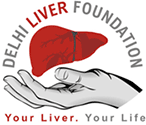Pancreas
Pancreatic is a gland, which secretes enzymes for the digestion of the food, and hormones like Insulin, Glucagon, and Somatostatin which are essential for metabolism of carbohydrate, lipid and proteins
Pancreas lies behind the stomach in upper abdomen. Common diseases of pancreas are acute pancreatitis, chronic pancreatitis, recurrent acute pancreatitis and pancreatic tumors.
Acute pancreatitis
Acute pancreatitis is sudden onset inflammation of pancreas which clinically manifest with symptoms of severe epigastric pain, vomiting, abdominal distension, constipation and obstipation. On examination, findings are epigastric tenderness, abdominal distension and decreased bowel sounds
Common causes of acute pancreatitis are
- Alcohol
- Gall stone disease
- Increased calcium or triglycerides in the blood
- Parasitic infection of pancreatic tree
- Annular pancreas
- Pancreas divisum
- Pancreatic tumors
- Vasculitis
- Blunt trauma to upper abdomen
Diagnosis is suspected in patients with pain abdomen associated with above mentioned other features and confirmed with the help of raised level of amylase and lipase in the blood, and USG/CT findings suggestive of pancreas enlargement or inflammation
All the patients with pancreatitis should be admitted on emergency basis
Disease course is variable in different individuals
Some patients have only abdominal pain vital functions of body are not affected
These patients can be managed with Nil by mouth approach, adequate IV fluid resuscitation and pain killers
However some patients may have associated organ failure, manifesting as decreased urine output, respirator distress, jaundice and decreases blood pressure. Patients with such severe disease must be admitted in ICU, and are started on organ support system and judicial antibiotics
Some patients later in course of illness, may develop infected or sterile fluid collection around the pancreas which requires treatment with IV antibiotics and drainage of infected fluid and debridement of infected solid tissue with the help of pigtail drainage, endoscopic drainage or surgery
Evaluation of cause of pancreatitis
Once attack of pancreatitis settles down, underlying cause should be found out and treated to prevent further attack of pancreatitis
Alcohol should be stopped, Gall stone should be ruled out with the help of ultrasound/MRCP and EUS, if stones are detected, laparoscopic surgery of gall bladder should be carried out
Blood test should be carried out to rule out metabolic causes
Role of EUS in acute pancreatitis
EUS is new but excellent tool for evaluation of pancreas
EUS can detect small stones/microliths in gall bladder and small tumor at ampulla or in pancreatic head
Moreover with the help of EUS guidance, fluid collection around the pancreas can be drained effectively

